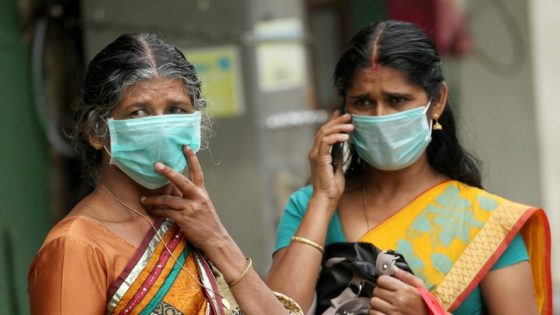
The extremely rare Nipah virus is on a rampage in India. So far, it’s killed a dozen people and its spread is causing “global concerns.”
At least 13 people have died in India after an outbreak of a rare disease that health officials warn could cause a global epidemic. Emergency measures have been imposed across the southwestern state of Kerala following the emergence of the Nipah virus, which causes flu-like symptoms leading to an agonizing brain-swelling condition known as encephalitis.
The Nipah virus, also dubbed (NiV) has a 70% mortality rate. There is no vaccine for the rare viral infection and those who contract the virus could wind up in a coma. Health experts have been flown over to help contain the virus, which is listed alongside ebola and zika as one of eight priority diseases the World Health Organisation believes could cause a “global epidemic.”
Since 1998, the Nipah virus has killed 260 people in Malaysia, Bangladesh, and India, and has previously spread to Singapore. Pigs were the host on that occasion, but this time it has been spread by fruit bats, with a number of the winged animals found dead in a well at the home of a family which has lost four people to the disease. Local media reports that close to 200 patients in Kozhikode and Malappuram are receiving hospital treatment, with 26 under observation and three under intensive treatment. Another who has died was a nurse treating those who had contracted NiV.
The NiV is highly contagious among pigs and is spread by coughing. Direct contact with infected pigs was identified as the predominant mode of transmission in humans when it was first recognized in a large outbreak in Malaysia in 1999. Drinking of fresh date palm sap, possibly contaminated by fruit bats during the winter season may have been responsible for indirect transmission of Nipah Virus to humans. Human-to-human transmission of NiV has been reported in several recent outbreaks demonstrating a risk of transmission of the virus from infected patients to healthcare workers through contact with infected secretions, excretions, blood, or tissues. –SHTFPlan
During previous outbreaks in India, first in 2001 and then in 2007, more than 50 people have died. On both occasions it was reported in the state of West Bengal, bordering Bangladesh, with the neighboring country carrying the brunt of the disease in recent years. But experts warn that without proper containment, this virus could cause a global issue.
The union health ministry has said the latest outbreak should remain localized, although the government has still urged people to take precautions and issued advice on preventative measures. People should not eat fruits that have fallen to the ground or appear to feature tooth or claw marks. People should also avoid traveling to the affected states until more is known, the government has said.
Fear continues to grow across the country as the virus continues to spread.





0 Comments